
CLT has been offering a Mini Research Series since the summer of 2012 as a summer module for the development of research skills of FCCU’s Faculty and Staff. This Mini Research Series consist of month long sessions under categories; Library Search, Writing skills, Research Methodology, Tools for Research. Sessions are conducted by experts of their respective fields.
Following is the year-wise record of Mini Research Series conducted by CLT.
| Topic | Time | Date | Resource Person/s | Intended Learning Outcomes | |
| Introduction | Theories of Research (Epistemology) | 12:30-2:30
pm |
June 14 |
Dr. Sikandar Hayat |
This session will give you an overview of the various theories of research and will cover: a)Logical Positivism / Empiricism, and b) Alternative Theories such as, Interpretive Theory, Critical Theory, Value Pluralism / Liberalism, Communitarianism, Postmodernism.
The session will conclude with a discussion on values and facts in Social Sciences research
|
| Library Search | Advanced Search Techniques / E-Library | 12:30-2:30 pm | June 17 |
Ms. Mehreen Tahir |
The session will demonstrate how to: a) Run effective literature searches using electronic resources especially those at FCC, using keywords, search statements, and other advanced search techniques b) Understand the concept of Cited Reference and how to run such searches in various databases c) Create your own list of references as a word document by transferring records from library databases
|
| Citations Manager | 12:30-2:30
pm |
June 18 | 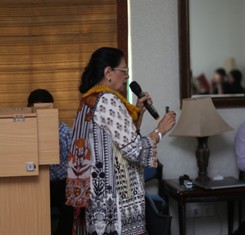
Ms. Bushra Jaswal |
In this session you will learn: a)How to use the software packages- ‘Citation managers’ to create personalized databases of citation information and notes b) You will understand how you can import and organize citation information from article indexes and other sources
Pl note that this is a demonstration only session. For hands-on sessions for End Note, Rotero and Mendeley, kindly register your intent during the session
|
|
| Literature Review and Research Ethics | Literature Review: Engaging with the Text (theory and practice) | 12:30-2:30 pm | June 25 |
(LUMS) |
The workshop will help you to understand:
a) Purpose of literature review and the requirements for writing it well b) Developing the research idea to research question and framing the theoretical construct c) The significance of framework / theoretical constructs to guide your research d) The content analysis and academic discourse
|
| Research Ethics and Digital Age: Avoiding Plagiarism | 12:30-2:30 pm | June 26 |
(LUMS) |
The session will prepare you to:
a) Comprehend the various facets of research ethics, the impact of digital age on its practice, issues of confidentiality, human subject protection and storage of data etc. b) Understand the spectrum of plagiarism given the digital explosion c) Cite properly to develop the bibliography in your discipline |
|
| Research Methodology | Qualitative Research | 12:30-2:30 pm | June 21 | Dr. Sikander Hayat |
The workshop will highlight defining characteristics of: a) Qualitative research b) How it is different from quantitative research c) What are its main approaches, and d) What are its principal methods of data collection |
| Quantitative Research | 12:30-2:30 pm | July 4 | 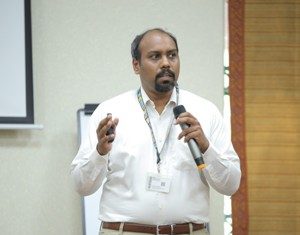
Dr. Sharoon Hanook |
The workshop session will focus on: a) Difference between Qualitative and Quantitative research study b) Study Designs: intro and planning c) Tools for designing a questionnaire_ Pretesting, validating and observing the reliability of a questionnaire. d) Tools to determine sample size
|
|
| Tools
for Research |
Statistical Methods for Research | 12:30-2:30 pm | July 8 | 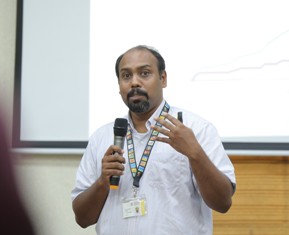
Dr. Sharoon Hanook |
This session will prepare you for:
a) Various sampling methodologies b) Ways to collect reliable sample c) Basic statistical methods for the quantitative analysis d) Descriptive Statistical Methods and their appropriate usage. e) Translating an application hypothesis to the statistical hypothesis. f) Using appropriate hypothesis testing and making sense of the outcomes for interpretation and application to the real-life problems
|
| Quantitative Methods
Using SPSS |
12:30-2:30 pm | July
16 & 17 |
Mr. Asif Shami | This hands-on workshop, spread over 2 days, will provide introduction to the SPSS, basic understanding of the environment and will equip you with the data coding and analysis of the quantitative data.
In this session you will get to learn to: a) Code, enter and import datasets from various platforms b) Select and perform appropriate descriptive statistical methods to summarize data c) Perform and interpret basic statistical tests d) Fit linear regression models and interpret the results with applications to the real-life datasets
|
|
| Reporting Statistical Results | 12:30-2:30 pm | July 19 | Dr. Sharoon Hanook | Reporting of the statistical results is one key component of the quantitative research. This will help you learn:
a) Simple rules for effective statistical practice b) Statistical issues in non-statistics research articles c) Effectively report statistical results and in various sections of the research report like in the abstract, introduction, discussion and conclusion
|
|
|
Writing Skills |
Research Writing and Publishing for the Humanities | 12:30-2:30 pm | June 27 |
|
“Publish or perish” sounds like a proverbial academic slogan but it is an institutional requirement for the university teachers and researchers. In this session we will address the nature of publication process related to the field of Humanities. We shall discuss questions like:
a) How and why do we need to publish b) How is research writing in humanities different c)What are some of the professional publication rules d) How is writing for publication a controlled art e) What keeps us motivated and committed i.e. what are the incentives (if ever) f) What could possibly be the politics of publication (if any)?
NOTE: Please register only if you have a paper ready for publication |
| Research Proposal and Writing in Social Sciences Research | 12:30-2:30 pm | June 28 | 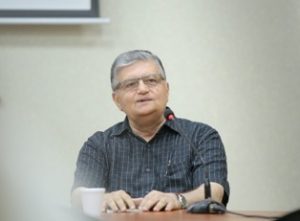
Dr. Sikandar Hayat |
In this session, you will discuss about the style and form of a research proposal in social sciences. You will also learn about the key components of research and how these are presented in the research writing
|
|
| Writing and Publishing in Natural Sciences | 12.30-2:30 pm | July 10 | 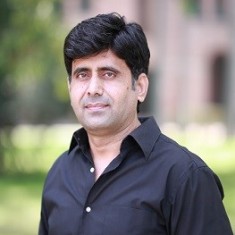
Dr. Saqlain Abbas Shah |
Different scientific disciplines explore different parts of our knowledge. Writing should reflect the structure of that research knowledge landscape. In this session you will also learn: a) About smart literature review b) How to use google scholar (to find the most relevant papers) c) Free download sources d) How to read papers and make notes e) How to calculate for ‘impact factor’
Publishing guidelines are similar across disciplines but differences of locating sources, citing them as appropriate to natural science, among others, will be flagged
|
|
| Research Proposal for Grants | 12:30-2:30
pm |
July 18 | 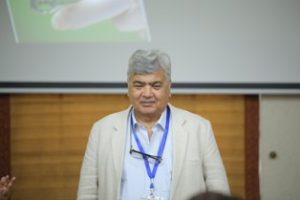
Dr. Kauser Abdullah |
The session will provide you skills to: a) Identify key skills in preparing a successful proposal b) Understand the key components for effective proposal writing c) Locate funder / donors for your proposal by discipline
|
|
| General | And what the books do not teach! | 12:30-2:30
pm |
July 23 |
Rukhsana Zia and Saqlain
|
In this session the panelists will share a) Abilities and attributes of a good researcher b) Tips to manage your research effectively and efficiently
|
CLT: A Mini Course: The Research Process
| Topic | Resource Person/s | Date | Time | Intended Learning Outcomes | |
| Research Methodology |
Qualitative Research |
Sikander Hayat |
5 June | 1-2:30 pm | The workshop will briefly touch on your research plan and your research question and equip you with information about different methods of research. This workshop session will focus on
a) why a qualitative study b) design of the study and skills to plan it effectively c) tools that support this approach |
| Writing Skills |
Literature Review: Engaging with the Text |
Asif Iftikhar |
7
June |
2-3:30 pm | The workshop will help you to understand
a) purpose of literature review and the requirements for writing it well b) developing the research idea to research question and framing the theoretical construct c) the significance of framework/theoretical constructs to guide your research d) the content analysis and academic discourse |
|
Research Proposal for Social Sciences |
Sikandar Hayat |
12 June | 1-2:30 pm | The session will provide you skills to
a) identify key steps in preparing a successful proposal b) style and form of the research proposal c) understand the key components for writing effective proposal |
|
|
Research Ethics and Digital Age: Avoiding Plagiarism |
Asif Iftikhar |
14
June |
2-3:30 pm | The session will prepare you to
a) comprehend the various facets of research ethics and the impact of digital age on its practice b) understand the spectrum of plagiarism given the digital explosion c) cite properly to develop the bibliography in your discipline |
|
| Research Methodology |
Quantitative Research |
Sharoon Hanook |
19 June | 1-2:30 pm | You will be introduced to the basics of common statistical approaches to data analysis and evaluation. The workshop will focus on
a) the underlying approaches concepts/ philosophy and the different types of quantitative data and their uses b) elements of questionnaire design c) different statistical tests and their application d) how to report and interpret reported data |
| Tools for Research |
Research Study Designs and Data Mining: Exploring Relationships |
Sharoon Hanook |
21 June | 1-2:30 pm | In this session you will be able to
a) understand different research study designs b) plan and implement for the various study designs c) understand data types d) understand the use of statistical methods to explore relationships among variables e) understand t-tests, chi square test, correlations, sign rank tests and power calculations and interpret results |
| Writing Skills |
Writing for Publication |
Waseem Anwar & Saqlain Abbas |
4 July | 1-2:30 pm | The workshop will cover thinking about
a) writing for publication and specifications particular to journal/s for publication b) basic template of academic writing with focus on effective writing skills c) evaluating for suitable academic journal/s d) understand peer review and impact factor specification as per HEC |
|
Research Proposal for Grants |
Kauser Abdullah |
6
July |
1-2:30 pm | The session will provide you skills to
a) identify key skills in preparing a successful proposal b) understand the key components for effective proposal writing c) locate funder / donors for your proposal by discipline |
|
| Tools for Research |
Basic Introduction to SPSS and Graphical Display of Data |
Sakkhi Babar |
10 July | 1-2:30 pm | This workshop will provide basic understanding of the SPSS environment and the rationale to use SPSS in your study. You will learn:
a) How to enter data into the SPSS data editor b) Basic manipulation and preparation of data for analysis c) Running basic descriptive statistics d) Using SPSS syntax editor |
|
Hypothesis Testing and Sample Size Determination |
Sharoon Hanook |
11 July | 1-2:30 pm | This session will prepare you for
a) various sampling methodologies b) identification of your research problem to write a hypothesis statement c) translating application hypothesis to statistical hypothesis d) formation of statistical hypothesis and testing using different hypothesis testing procedures e) understand the significance of all above to determine sample size for research |
|
| Library Search |
Advanced Search Techniques |
Bushra Jaswal |
17 July | 1-2:30 pm | The workshop will teach you to
a) run effective literature searches using electronic resources especially those at FCC, using keywords, search statements, and other advanced search techniques b) understand the concept of Cited Reference and how to run such searches in various databases c) create your own list of references as a word document by transferring records from library databases |
| Rubrics |
Advanced Rubrics |
Ivan Suneel Samuel |
19
July |
1-2:30 pm | Specifically targeting the experienced faculty who want to improve their rubric making skills. Please, bring along your assignment and the accompanying rubric to discuss and refine during the session. |
Syed Aun Haider Naqvi Mobile: 0313-4417515 E-mail: aunhaider@fccollege.edu.pk
Contact us: Room N-207 (Ahmed Saeed Building) Phone Ext: 325
CLT: A Mini Course: The Research Process
| Topic | Resource Person/s | Date | Time | Venue | Intended Learning Outcomes | ||
| Writing Skills | Literature Review:
Engaging with the Text |
Asif Iftikhar | June
2 |
11 am_
1 pm |
AS 207 | The workshop will help you to understand
a) purpose of literature review and the requirements for writing it well b) developing the research idea to research question and framing the theoretical construct c) the significance of framework/theoretical constructs to guide your research d) the content analysis and academic discourse |
|
| Research Ethics and Digital Age: Avoiding Plagiarism | Asif Iftikhar | June 3 | 11 am-
1 pm |
AS 207 |
The session will prepare you to a) comprehend the various facets of research ethics and the impact of digital age on its practice b) understand the spectrum of plagiarism given the digital explosion c) cite properly to develop the bibliography in your discipline
|
||
| Research Methodology | Qualitative Research | Sikander Hayat | June 6 | 11 am-
1 pm |
AS 207 |
The workshop will briefly touch on your research plan and your research question and equip you with information about different methods of research. This workshop session will focus on a) why a qualitative study b) design of the study and skills to plan it effectively c) tools that support this approach |
|
| Quantitative Research | Sharoon Hanook | June 7 | 11 am-
1 pm |
AS 207 |
You will be introduced to the basics of common statistical approaches to data analysis and evaluation. The workshop will focus on a) the underlying approaches concepts/ philosophy and the different types of quantitative data and their uses b) elements of questionnaire design c) different statistical tests and their application d) how to report and interpret reported data |
||
| Library Search | Advanced Search Techniques | Bushra Jaswal | July
18 |
11 am
to 1 pm |
AS 207 | The workshop will teach you to
a) run effective literature searches using electronic resources especially those at FCC, using keywords, search statements, and other advanced search techniques b) understand the concept of Cited Reference and how to run such searches in various databases c) create your own list of references as a word document by transferring records from library databases |
|
| Writing
Skills |
Writing for Publication | Waseem Anwar
& Saqlain Abbas |
July 25 | 11 am
to 1 pm |
AS 207 | The workshop will cover thinking about
a) writing for publication and specifications particular to journal/s for publication b) basic template of academic writing with focus on effective writing skills c) evaluating for suitable academic journal/s d) understand peer review and impact factor specification as per HEC |
|
| Research Proposal for Grants | Kauser Abdullah | July
29 |
11 am to 1 pm |
AS 207 | The session will provide you skills to
a) identify key skills in preparing a successful proposal b) understand the key components for effective proposal writing c) locate funder/donors for your proposal by discipline |
||
| Tools for Research | Basic Introduction to SPSS and Graphical Display of Data | Asif Shami | July 28 | 12 pm
to 1 pm |
S 218 | This hands-on workshop will provide introduction to SPSS and the rationale to use SPSS in your study. You will learn:
a) to code, enter and format SPSS from a variety of sources b) to select appropriate approaches (Numerican and Graphical) to illustrate/summarize the data set c) to carry out a summary analysis of data and interpret summary statistics d) skills to run a simple statistical test and interpret results e) to fit linear regression models in SPSS f) to interpret and report data outcomes |
|
| Hypothesis Testing and Sample Size Determination | Itrat Batool | July
19 |
11 am
to 1 pm |
AS 207 | This session will prepare you for
a) various sampling methodologies b) identification of your research problem to write a hypothesis statement c) translating application hypothesis to statistical hypothesis d) formation of statistical hypothesis and testing using different hypothesis testing procedures e) understand the significance of all above to determine sample size for research |
||
| Research Study Designs and Data Mining:
Exploring Relationships |
Sharoon Hanook | July
20 |
11 am
to 1 pm |
AS 207 | In this session you will be able to
a) understand different research study designs b) plan and implement for the various study designs c) understand data types d) understand the use of statistical methods to explore relationships among variables e) understand t-tests, chi square test, correlations, sign rank tests and power calculations and interpret results |
||
Engaging with the Text – 12 Research Ethics – 12
Qualitative Research – 12 Quantitative Research – 10
Adv. Search Tech. – 4 Hypothesis Testing – 8
Research Study Designs – 11 writing for publication – 8
SPSS – 11 Research Proposal for Grants – 14
Video Conferencing Sessions – (Session – 1, Participants – 4) Turnitin Tutorials – 3 Reservations – 3 Total Participation (3+43) – 46
Mini Research Series: 2015
| Topic | Resource Person/s | Date | Time | At | Comments |
| Stages to Research Publication: Our Conference Going Experiences | Dr. Waseem Anwar | June 9 | 1-2.30 pm | N-207 | Between just thinking about it to dreaming about its final publication, our written research may have many preliminary to prerequisite stages. In many ways, good researching also begins with going to (good) conferences and this may include discussions and debates with peers and colleagues in one’s specific field. Overall, this develops into a very collegial academic networking. Going to conferences as an attendee, a participant, a panelist, a presenter, a session chair, a speaker, a guest–speaker, a keynote, or in any other capacity becomes vital towards one’s research aptitude as well as attitude. In this session we shall share experiences and possibilities regarding our role to be part of (good) conferences and how this may add to what we target finally as a proper research publication. |
| Searching for Research | Mrs. Bushra Almas Jaswal | June 15 | 1-2:30 pm | N-207 | No research is complete without the library. You will learn to exploit the resources available on campus and outside the campus. You will also learn how to hone in your skills for using the search engines on the net. Do come prepared with your questions, if any.
|
| Searching for Grants/ Funding | Dr. Kauser Abdullah Malik | July 22 | 1-2.30 pm | N-207 | For the faculty who would like to explore options for research grants/ funding for their academic work but do not get time to search, are welcome to join. Sites for both Natural and Social Sciences will be provided. Requirements of proposal writing for HEC grants will be discussed. |
| Qualitative Research methods: Focus on Tools of Research | Dr. Sikander Hayat | July 27 | 2-4:30 pm | N-207 | Academia is increasingly acknowledging the significance of Qualitative Research. Come prepared to discuss its strengths, and the use of tools specific to this type of research |
| How to Publish your Research | Dr. Sikander Hayat | July 30 | 2-4:30 pm | N-207 | All Journals have their own specific requirements for publication. In Pakistan impact factor makes a difference in your rating for various purposes. Come prepared to learn what it takes to publish in a journal or a chapter in a book or even to publish your own book. |
| SPSS | Mr. Asif Shami | July 30 | 9-11 am | S-319 | Good opportunity to learn: 1.how to code and creating data analysis sheet on SPSS. 2. Analyzing the data using basic techniques and interpretation of the SPSS output. Participants with some basic knowledge of data presentation and averages are encouraged to join |
Stages to Research Publication – 15 Searching for Research – 10 F2F – 2 Learning Groups – (2+8+5+6+6) 27
Total Participation in CLT Sessions – 54
Turnitin One to One Tutorials- 3 CLT Meeting Room Reservations – 4 Other Sessions – 2
CLT: Mini Research Series
| Topic | Resource Person/s | Date | Time | At | Comments |
| Research and Publishing in the Humanities and Social Sciences | Dr. Masood Raja | July
7-8 |
1-4 pm | Board room & IEAP LAB | Director, UNT-NUML, Partnership, Associate Professor of English, University of North Texas |
Mr. Syed Aun Haider Naqvi Mobile: 0313-4417515 E-mail: aunhaider@fccollege.edu.pk
Contact us: Room AS-124 (Ahmed Saeed Building) Phone Ext: 325
CLT: Mini Research Series
| Topic | Resource Person/s | Date | Time | At | Comments |
| How do you get a “Research Productivity Award” | Saqlain Abbas,
Asad M. Khan, Nadeem Asghar, M. Aslam |
June
3 |
1- 2
pm |
AS (N) 122 | Science faculty are encouraged to (i) understand how award is calculated (ii) how to work towards getting a mention for the award and we will then discuss (iii) how to ensure a better grade, A or B. |
| Grooming Students for Writing an Academic paper | Dr. Waseem Anwar | June
12 |
1-2 pm | AS (N) 122 | Concerted effort by faculty across all disciplines is needed to ensure that the students’ writing of assignments/term papers conforms to the structure and essence of academic writing. Teaching students to avoid plagiarism is a major challenge as well. Pl. join. |
| Time Management Skills
( put first things first) |
Dr. Hafiz Abdul Ghani | June
17 |
1-2 pm | AS (N) 122 | Time is the most precious resource that God has blessed us with. Many people do not know how to manage and spend their precious resource. This workshop discusses the top secret of time management and teaches how to stay focused |
| Searching for Grants/ Funding | Dr. Kauser Abdullah Malik | July 10 | 1-2.30 pm | Boardroom Rector’s Office | For the faculty who would like to explore options for research grants/ funding for their academic work but do not get time to search, are welcome to join. Sites for both Natural and Social Sciences will be provided. Requirements of proposal writing for HEC grants will be discussed. |
| Structure of a Research Paper | Dr. Waseem Anwar | July 17 | 1-2.30 pm | Boardroom Rector’s Office | A quick overview of the research paper for publication will be provided. Pl come prepared for any questions that you might have. Faculty of Humanities and Social Sciences will learn to follow the dictums of their professional organizations. Emphasis will be given to ‘Thesis statement’ writing and ‘Literature Review’ |
| Qualitative Research methods: Focus on Tools of Research | Dr. Sikander Hayat | July 19 | 1-2.30 pm | Boardroom Rector’s Office | Academia is increasingly acknowledging the significance of Qualitative Research. Come prepared to discuss its strengths, and the use of tools specific to this type of research |
| How to Publish your Research | Dr. Sikander Hayat | July
22 |
1-2.30 pm | Boardroom Rector’s Office | All Journals have their own specific requirements for publication. In Pakistan impact factor makes a difference in your rating for various purposes. Come prepared to learn what it takes to publish in a journal or a chapter in a book or even to publish your own book. |
| Searching for Research | Mrs. Bushra Almas Jaswal | July
29 |
1-2:30 pm | Computer Lab AS (N) 207 | No research is complete without the library. You will learn to exploit the resources available on campus and outside the campus. You will also learn how to hone in your skills for using the search engines on the net. Do come prepared with your questions, if any. |
| Dealing with Plagiarism at Higher Education | Dr. Rukhsana Zia | July
31 |
1-2.30 pm | AS-122 | All writing is ultimately judged on basis of its integrity. You will learn about the different types of Plagiarism and how to avoid it in your writing. |
SPSS (Col-2 Uni-12 Others-6) , Writing for Research (Col-0 Uni-14 Others-0) , Searching for Grants (Col-1 Uni-9 Others-1), Structure of a Research Paper (Col-2 Uni-10 Others-1) , Qualitative Research Methods (Col-3 Uni-3 Others-1), How to Publish your Research (Col-2 Uni-8 Others-3), Searching for Research (Col-2 Uni-3 Others-0), Dealing with Plagiarism at H.Ed (Col-1 Uni-2 Others-4), Research Productivity Award – 15, Writing Academic Paper – 12 (Uni 1, Coll. 6, LCWU 5), Time Management – 20 (Uni 5, Col-12, LCWU 3), Total (Workshop Only) (Col-39 Uni-67 Others-24)= 130
Our Faculty Attended Workshops at LCWU – Turnitin Support – 7
CLT: Mini Research Series (Focus on Research and Writing)
| Sr. # | Topic | Resource Person/s | Date |
Time
|
At | Comments |
|
|
Access and Use of Online Info for Research | Bushra Almas Jaswal | 20 | Cancelled | Learn to access the resources at FCC library. The session will offer some simple and effective steps to help you locate the relevant information: for your research. | |
|
|
Research/Academic Papers: Teaching Students to write | Nukbah Langah
& Waqar Azeem |
18 | 1-2 pm | AS-122 | Students have to learn to submit quality academic papers. The session will focus on the structure of the research /academic report/paper. A template will be suggested and some tips on writing style will be shared |
|
|
References and Citations | Ivan Sunil Samuel | 24 | 1-2 pm | AS-122 | Writing papers or conducting research in the Social? Please register to ensure you use the accurate format for referencing. The session will specifically focus on the latest APA format. |
|
|
Data Analysis: SPSS | M. Anwar Mughal
& Asif Shami |
16 | 11-12:30 pm | S-120 | (SPSS) is a package of programs for manipulating, analyzing, and presenting data. The package is widely used in the social and behavioral sciences. This session is a basic introduction to use this comprehensive tool. Those who are serious in pursuing it further will be offered further in-depth sessions. |
|
|
Detecting Plagiarism: Beyond Turnitin | Babar Aziz,
& Ikram Aujala |
26 | 1-2:30 pm | AS-206 | The enforcement of the Academic Integrity Policy demands an effective detection of plagiarism. Turnitin provides you with a ‘similarity match’. That it is plagiarism per se or falls within the ambit of FCC Plagiarism policy is for you to detect. Bring your queries to the session for further clarity. |
|
|
Publishing your Research: Some Basic Considerations | Waseem Anwar | 31 | 1-2 pm | AS-122 | Want to publish? For the dream to come true we have to undergo some very practical, pragmatic and highly technical processes. At times, it is very encouraging but then at others it is very discouraging. We will discuss questions like, ‘What keeps us motivated and committed, what are the incentives (if ever), what could be the politics of publication?, and some more’. Such a many other issues will be shared if not completely resolved. The participants are expected to bring their issues along with the resources close to their disciplines to discuss. Register only if you have a paper ready for publication. |
|
|
Writing Proposals for Grants | Kauser Abdullah Malik | 30 | 1-2 pm | AS-122 | Writing proposals is an art. It is a major factor in getting you the funds for your research. |
|
|
Research Series: Islam, Education, Politics — Reflections on Life in a Madrasa | Bilal A. Malik | 13 | 11:30-1 pm | AS-122 | For his PhD fieldwork, Bilal lived for one year inside a Sufi-minded boys’ madrasa in Bhera. In his dissertation, he is exploring: how madrasa culture shapes religious beliefs, sectarian identities, and Islamist politics. He will share some of his preliminary findings in an informal and interactive discussion. All interested are welcome to join. |
Teaching student to write – 6 Citations – 2 SPSS – 5 Turnitin – 7 Publishing your Research – 5 Writing Proposals for Grants – 8
Research Series – 31 Grand Total – 64
Mr. Syed Aun Haider Naqvi Mobile: 0313-4417515 E-mail: aunhaider@fccollege.edu.pk
Contact us: Room AS-124 (Ahmed Saeed Building) Phone Ext: 325
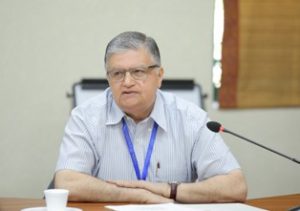
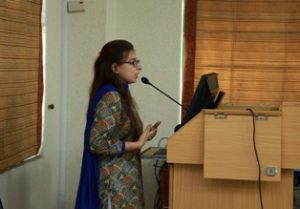
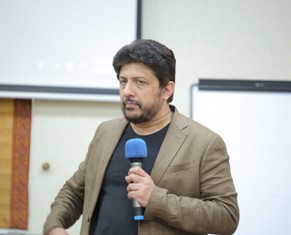 Mr. Asif Iftikhar
Mr. Asif Iftikhar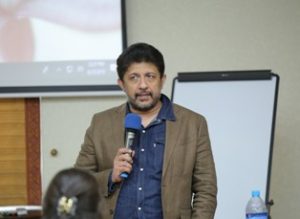 Mr. Asif Iftikhar
Mr. Asif Iftikhar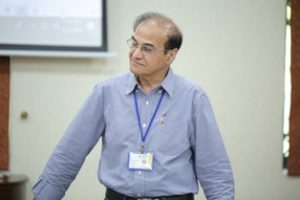 Dr. Waseem Anwar
Dr. Waseem Anwar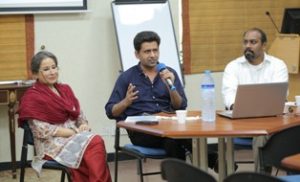 Drs. Sharoon Hanook,
Drs. Sharoon Hanook,